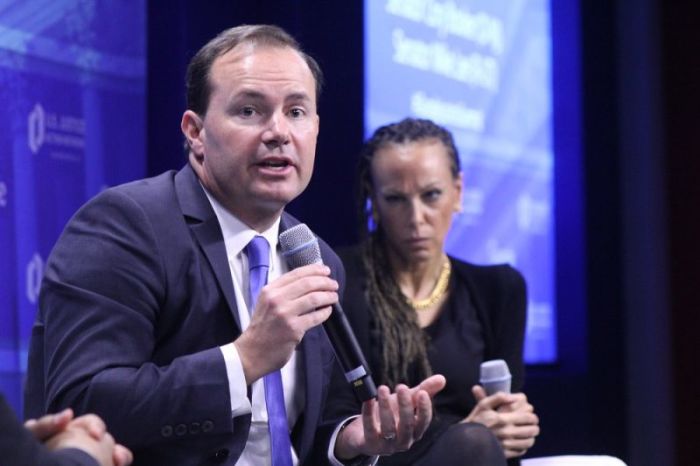Senators ask Trump to restrict COVID-19 relief to states that keep churches closed

A group of Republican U.S. senators have asked President Donald Trump to withhold COVID-19 relief from states that wrongfully keep churches closed amid the pandemic.
In an official letter sent out to the president last week, the senators explained that there were “many state and local government leaders” that were violating religious freedom.
“… there continue to be reported cases of states and localities prohibiting religious entities, including houses of worship, from reopening safely despite compliance with safety precautions,” they said.
“This discriminatory behavior violates our Constitution’s guarantee of religious freedom, specifically the free exercise guarantee … Our nation needs its houses of worship now more than ever.”
They went on to urge Trump to support measures in Congress “to place restrictions on any forthcoming COVID-19 relief funding to states and localities that prevent churches, houses of worship, and religious schools and institutions from reopening.”
“Such executive action would send the nation and government leaders a clear and unequivocal message that religious liberty matters, and that no state or locality can unilaterally strip away protected constitutional rights."
The letter was signed by Senators Mike Lee of Utah, Mike Braun of Indiana, Josh Hawley of Missouri, Steve Daines of Montana, Kelly Loeffler of Georgia, Thom Tillis of North Carolina, Cindy Hyde-Smith of Mississippi, Roger Wicker of Mississippi, James Lankford of Oklahoma, and Tom Cotton of Arkansas.
Multiple states have garnered controversy over the extent to which they can restrict in-person worship services in order to curb the spread of the coronavirus.
Some have argued that these various measures violate the religious liberty of churches, while others have argued that they represent necessary steps to preserve public health.
Last week, a group of Christian ministries filed a lawsuit against California over an executive order that effectively bans Bible studies and other small group meetings.
The lawsuit was filed on behalf of the Pasadena-based Harvest Rock Church and Harvest International Ministries, who are being represented by the Liberty Counsel.
“Gov. Newsom encourages thousands of protesters to gather in the streets but bans in-person worship and home Bible studies and fellowship. This discriminatory treatment is unconstitutional,” said Liberty Counsel founder Mat Staver in a statement.
“Governor Gavin Newsom cannot disregard the First Amendment and ban all in-person worship in private homes and churches. Nor can the state micromanage the form of worship by banning singing or chanting.”
Last Friday, the United States Supreme Court decided 5-4 not to block the enforcement of a Nevada order restricting in-person worship services to no more than 50 people.
The Nevada order was viewed by some as discriminatory, as secular businesses like casinos are allowed to operate at 50% capacity and can have well over 50 people gathered at a time.
In a short dissent, Supreme Court Justice Neil Gorsuch argued that “in Nevada, it seems, it is better to be in entertainment than religion. Maybe that is nothing new. But there is no world in which the Constitution permits Nevada to favor Caesars Palace over Calvary Chapel.”




























